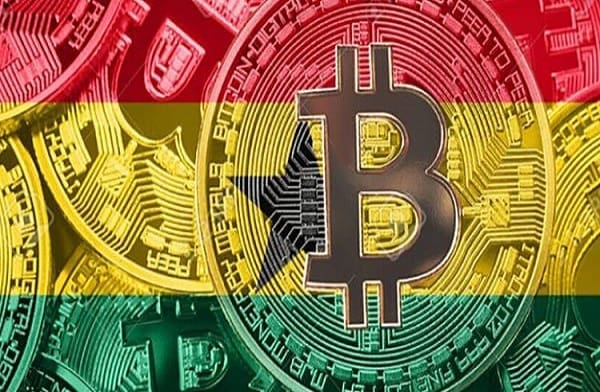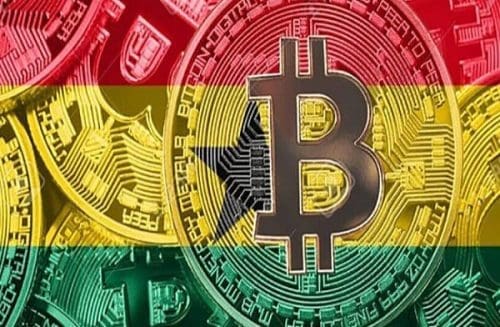
The Bank of Ghana (BoG) has officially registered more than 100 virtual asset service providers (VASPs) as part of a new regulatory framework designed to oversee the country’s expanding cryptocurrency market, marking Ghana’s first coordinated national approach to regulating digital assets.
The announcement was made in a release dated November 5, 2025, alongside a comprehensive policy document titled Ghana’s Policy Position on Virtual Assets and Service Providers. According to the central bank, the registration exercise conducted in July 2025 identified over 100 companies offering services such as crypto exchange, digital wallet management, brokerage and investment advisory to an estimated three million Ghanaian users.
To ensure effective supervision, BoG will establish a new Virtual Assets Regulatory Office (VARO) tasked with monitoring the industry, enforcing compliance and coordinating with other state institutions. The office will work in close collaboration with the Securities and Exchange Commission (SEC), the Financial Intelligence Centre (FIC) and other stakeholders to ensure that VASPs operate in a safe, transparent and compliant manner.
The policy paper stated that the bank recognizes that virtual assets can no longer remain outside Ghana’s financial regulatory remit. VARO will act as a link between government oversight and the virtual assets industry, working with agencies such as SEC, FIC, Ghana Revenue Authority (GRA) and the National Communications Authority (NCA).
The new policy marks a major shift in the bank’s stance. Between 2018 and 2022, BoG repeatedly warned that cryptocurrencies were not legal tender, directing financial institutions to avoid processing crypto related transactions. The 2025 policy, however, moves from caution to structured regulation, focusing on managing risks rather than banning the technology.
Under the framework, Ghana’s regulatory approach will be risk based and activity specific, meaning oversight levels will depend on the type and scale of services offered. High risk activities such as trading and asset custody will face stricter licensing rules, while low risk services will go through simplified registration procedures.
BoG will supervise activities related to payments and custody, while SEC will oversee trading and investment services. FIC will handle anti money laundering compliance in coordination with the other regulators. Despite the new framework, BoG reaffirmed that virtual assets will not be recognized as legal tender in Ghana.
The aim, it said, is to balance innovation with consumer protection, reduce exposure to fraud, money laundering and terrorism financing, and maintain financial stability. The move follows Ghana’s 2024 National Anti Money Laundering and Counter Financing of Terrorism (AML/CFT) Risk Assessment, which highlighted growing exposure of banks and securities firms to crypto related activities without sufficient oversight.
The policy also proposes the creation of a National Virtual Assets Literacy Initiative (NaVALI), to be developed with SEC and the Ministry of Education. The initiative seeks to boost public awareness and financial literacy, particularly among young Ghanaians, who make up the largest share of crypto users.
BoG’s move aligns Ghana with international best practices recommended by the Financial Action Task Force (FATF), the International Monetary Fund (IMF) and the Bank for International Settlements (BIS), all of which advocate for regulated, transparent digital asset ecosystems.
By taking this step, Ghana joins a small but growing group of African nations including South Africa, Kenya and Nigeria that are transitioning from unregulated crypto activity toward comprehensive oversight and innovation driven governance. The policy rejects an outright ban on virtual assets, arguing that prohibition could drive activities underground and make them more difficult to monitor.
The mandatory registration exercise required all VASPs offering services to individuals residing in Ghana, whether through a physical presence or digital platform, to complete registration by August 15, 2025. BoG stated that registration is compulsory and non compliance may lead to regulatory action or exclusion from future licensing.
Registration does not constitute a license to operate, nor does it imply legal recognition or approval. The bank reserves the right to issue further instructions depending on the outcomes of this process. This registration exercise supports BoG’s efforts to develop a legal and regulatory framework that reflects current market developments and aligns with international standards.
BoG emphasized that the registration of VASPs and establishment of VARO mark a new era of responsible innovation in Ghana’s financial ecosystem, one aimed at building trust, protecting consumers and positioning Ghana as a leader in Africa’s digital finance landscape.
Ghanas-Policy-Position-on-Virtual-Assets-and-Service-Providers
